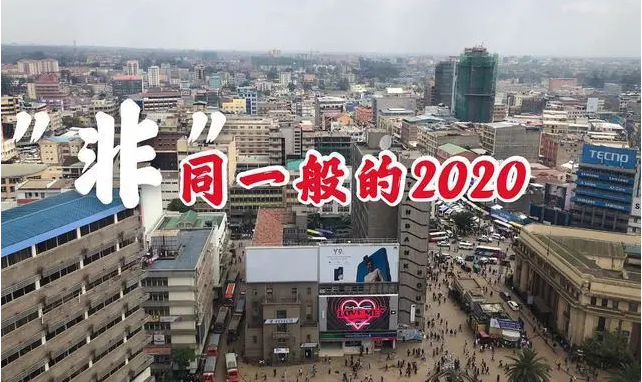
How much do African people like Chinese products? We can answer this question by looking at the best sellers on the African continent, such as petty commodities, mobile phones, smart products, clothing, shoes and hats, home appliances, etc. Some Chinese companies have even invested in the establishment of factories in Africa. At the same time, African local products, such as coffee, tea, avocado, and fresh cut flowers, also have the opportunity to enter the large Chinese market.
The amount of coffee sold via livestream marketing in a second is the one-year sales volume
"5, 4, 3, 2, 1. The link is live!"
More and more Chinese people are becoming very familiar with livestream marketing this year. However, not many Chinese people know that this marketing model is also popular in Africa. Recently, Vera Songwe, Under-Secretary-General of the United Nations and Executive Secretary of the United Nations Economic Commission for Africa (UNECA) and James Kimonyo, Rwandan Ambassador to China, sold Rwandan coffee during a livestreaming promotion in a live-streaming room with more than 10 million viewers.
Many local coffee farmers watched this event remotely from Rwanda. They felt quite amazing when seeing that 1,500 kg of Rwandan coffee were sold out within minutes, equivalent to the one-year sales volume in the past.
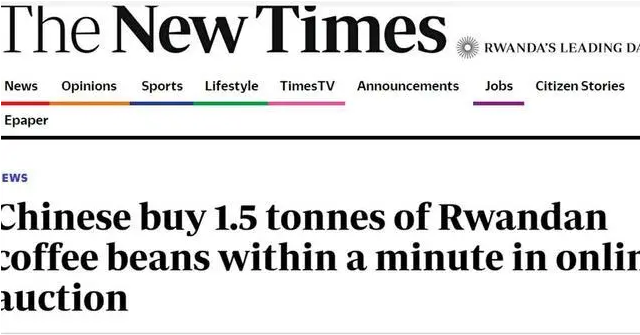

Rwandan media's report on the sales opportunities that livestream marketing brings to local farmers
Due to unique natural climatic conditions, Rwanda's coffee has a distinctive taste, making it one of the country's main agricultural products exported for earning foreign currency. Good as the quality is, Rwandan coffee is still not well-known. It has an urgent demand for China's huge market.
Affected by COVID-19, Rwanda once closed its border, suffering a sharp drop in the number of orders from the European and American markets. Many Rwandan coffee farmers were facing the dilemma of nowhere to sell their products at harvest time.Luckily, they were able to establish ties with Chinese consumers in providing high-quality coffee beans through China's e-commerce platform.
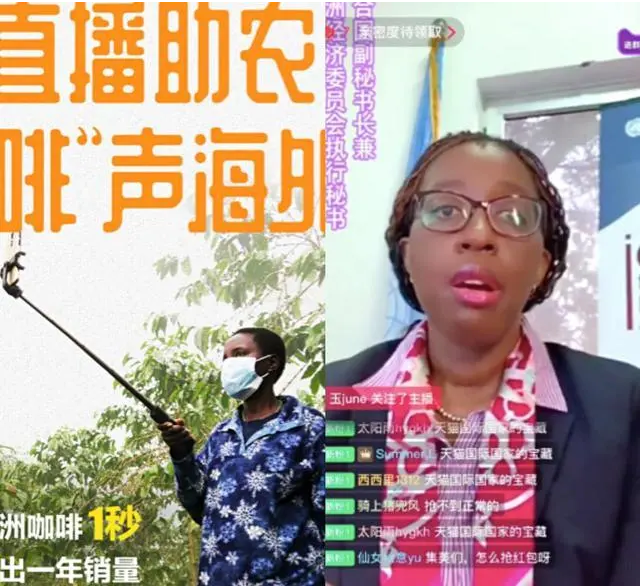
"The pandemic has brought global economic activity to a halt. It is particularly important for Africa and China to continue to strengthen trade ties because that is one of the important ways for us to build a prosperous world and a prosperous Africa, together with China," Executive Secretary of the UNECA Vera Songwe said in the live-streaming room.

Rwandan Ambassador to China James Kimonyo also became an "Internet celebrity" after participating in this event. "I have participated in livestream marketing five times in China this year," said the African diplomatic officer who has sold Agricultural products from Rwanda online many times this year. Every live-streaming experience makes him deeply feel the huge potential in the Chinese market.
There is another China-Africa trade company that is targeted at China's huge coffee market. Zhang Renquan, a Chinese who has lived in Africa for 7 years, has always had confidence in the quality of Kenyan coffee. In 2020, he obtained the agency right of a famous Kenyan coffee brand and was determined to provide Kenyan coffee for the Chinese market. With Kenyan coffee, he participated in dozens of large and small exhibitions this year, including China International Import Expo (CIIE).
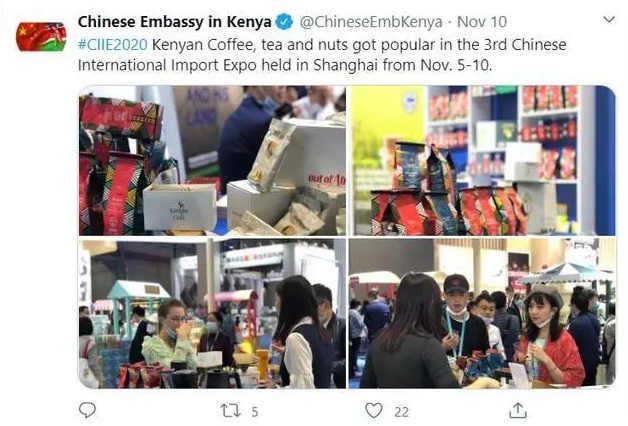
The Chinese Embassy in Kenya posts a message on its overseas social media account, announcing the appearance of Kenyan coffee at CIIE
Hearing that Zhang Renquan was doing coffee business, Kenya's Ambassador to China Sarah Serem said excitedly, "I hope that I can drink coffee from Kenyan coffee shops in Sanlitun."
China is directly investing in establishment of factories in Africa due to the rising popularity of Chinese products in Africa
People who have visited Africa must be surprised that Chinese products are absolute hot sellers in Africa. A great variety of Chinese products, including mobile phones, wigs, and clothes, have won great favor from African people. There is no need to be surprised at the sight of Chinese elements on the streets in the cities of different African countries.
In the central business district of Nairobi, Kenya, there are eye-catching advertisements for Chinese brand mobile phones.
On the main street of the Presidential Palace in Antananarivo, Madagascar's capital, there is a small Chinese brand chain store.
Among the best-selling products in the landmark shopping mall in Kampala, Uganda's capital, there must be Chinese products...
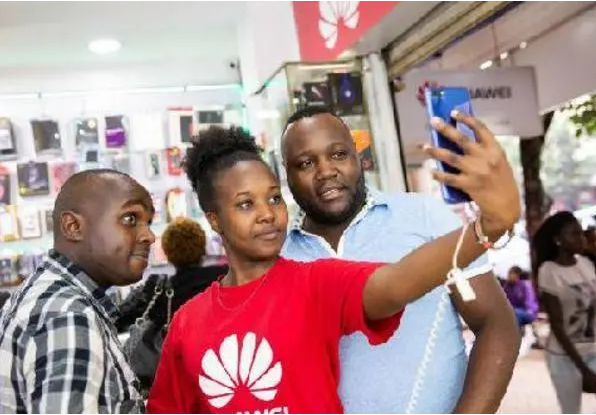
In the context of COVID-19, the potential of China-Africa trade and economic cooperation remains impressive. According to statistics from the General Administration of Customs of China, in January-June, China’s total trade volume with Africa was USD 101.86 billion, up 2.9% year on year, exceeding the overall growth rate of foreign trade in the same period by 4.9 percentage points. Among these, China's exports to Africa were USD 52.86 billion, up 5.2% year on year and China's imports from Africa were USD 49.00 billion, up 0.5% year on year.
Chinese products are sold well in Africa. In addition, some Chinese businessmen who are optimistic about the African market are also directly investing in the establishment of factories in Africa at present.
In Uganda in East Africa, a Chinese enterprise has invested in the establishment of the Sino-Uganda Mbale Industrial Park. Because of Uganda's geographic location, the enterprise hopes to establish the park as a manufacturing center in East Africa. Now, the park has attracted many manufacturers from different industries to settle in. Recently, an electronics industry company from Shenzhen also opened here. Mbale's mayor said excitedly, "This marks the birth of Uganda's first enterprise in the electronics industry. I believe that our electronics industry will thrive here."

The construction of this industrial park is not only a business opportunity for the Chinese enterprise, but also can promote the process of local industrialization and create new jobs for local people. Even Yoweri Kaguta Museveni, President of Uganda, has repeatedly praised the construction of the Chinese-funded park and thanked China.
A bright future for China-Africa business ties
A number of policies issued recently have provided opportunities for the high-quality development of China-Africa economic and trade ties. Recently, the National Development and Reform Commission and the African Union signed the Cooperation Plan between the Government of the People's Republic of China and the African Union on Jointly Promoting the Building of the Belt and Road Initiative. This is the first cooperation document signed by China and regional international organizations to jointly build the Belt and Road Initiative.
The plan mainly focuses on five aspects, namely, policy, infrastructure, trade, financial and people-to-people connectivity, in the building of the Belt and Road Initiative (BRI). It specifies the content and key projects of cooperation and puts forward corresponding schedules and roadmaps.
For China, the signing of this plan will help the two sides jointly address global challenges and promote high-quality BRI development. After the Cooperation Plan is signed, China will establish a BRI cooperation coordination mechanism with the African Union Commission to advance the plan's implementation.
In addition, the African Continental Free Trade Area (AfCFTA) is set to formally begin on January 1, 2021. The construction of the AfCFTA will unleash great potential in advancing the integration of Africa. Africa is expected to form a large market covering more than 1.2 billion people, with a total GDP of USD 2.5 trillion. This will also bring new opportunities to deepen China-Africa economic and trade cooperation.
Liu Hongwu, Director of the Institute of African Studies, Zhejiang Normal University, says that the construction of the AfCFTA will effectively enhance economic coordination and interaction among member countries of the AfCFTA and drive the internal market into a period of accelerated expansion. China and Africa can give play to their respective strengths in a broader range of areas, expand trade volume and investment scale, and better coordinate China's development partnership with the entire African continent.